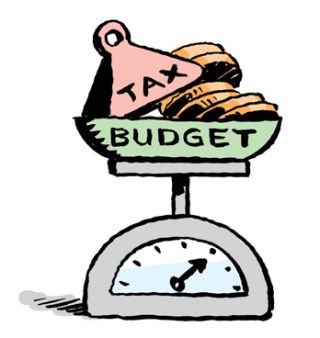Budget 2024 - Despite record surpluses, challenges persist

Uncertainty once again dominates Ireland’s social and economic outlook and frames the context for Budget 2024. The Budget must respond to the ongoing cost of living challenges, particularly for lower income households, but also recognise uncertainties associated with taxation revenues and which combined make the fiscal context for Budget 2024 particularly challenging.
First, the geopolitical instability triggered by Russia’s invasion of Ukraine continues to unfold and is likely to have further effects on living costs and living standards across 2024. Again, the scale of these effects are unknown. However, evidence continues to highlight that it is lower income households that are most exposed to these effects, household that have the least capacity to absorb these higher day-to-day living costs. Like Budget 2021 and 2022 (Covid-context) and Budget 2023 (cost-of-living crisis context), Budget 2024 will have to include a provision for possible additional public expenditure in the months ahead so that there is an available and credible fiscal response available to Government should further supports be required.
Second, the Budget arises in the context of large windfall corporation tax revenues flowing to the exchequer from a very small number of multi-national companies. Budget 2023 commenced referring to these revenues as ‘excess corporate taxation’ reflecting an overdue recognition by Government that these revenues are both unexpected and unsustainable. They reflect windfall gains to the state triggered by the OECD BEPS reforms of international corporate taxation and a slow but overdue realignment of corporate profits with corporate activities. In the medium-term these revenues will shift from Ireland to other states where the activity and profits arise; irrespective of the accountancy techniques that currently move them around and to lower corporate tax jurisdictions like Ireland.
The latest Fiscal Assessment Report from the Irish Fiscal Advisory Council (IFAC, June 2023) estimates windfall receipts of €13.1 billion in 2024; that is revenue over and above the normal taxation that would arise from corporate activities. IFAC also expect these windfall gains to remain roughly unchanged between now and 2026 (averaging €13.3 billion per annum); with some decreases following in subsequent years. Consequently, the challenge of strategically managing these windfall tax receipts is one that is relevant for Budget 2024 and a number of future Budgets. Budget 2024 needs to articulate a clear strategy for the management of these funds framed in the context of the long-term interests of Irish society.
Social Justice Ireland’s proposed stance
Social Justice Ireland believes that Budget 2024 should be guided by one core principal, that the measures adopted prioritise the protection of the most vulnerable groups in our society.
This focus should also be articulated as the basis of the approach Government will take during 2024 if it becomes necessary to use additional resources, beyond those directly announced as Budget measures, to respond to the implications of the coast-of-living uncertainties outlined earlier. A commitment to targeted measures, and not populist universal transfers, is important and best reflects the objective of protecting those most in need.
As a means of managing the uncertainties associated with corporate taxation revenues, Social Justice Ireland proposes that Budget 2024 should be split in two parts. Once-off windfall tax gains should be invested only in one off infrastructure projects and accounted for separately. Separately, the normal budget should be presented using the regular budget process.
This would mean that Government could then ensure that regular Budget expenditure is funded through recurring revenue and there would be no sudden surprises associated with decreases in revenue when the windfall taxes no longer flow. These two parts of the Budget can then be brought together to provide the overall Budget picture.
Taking this approach is not only fiscally prudent, but it would also ensure full transparency of the budgetary process and allow Government the opportunity to outline a clear plan for the management of these windfall revenues in the context of the long-term interests of Irish society.
Reflecting this approach, Social Justice Ireland proposes that:
- Budget 2024 makes a series of one-off investments in our social infrastructure funded from one-off windfall corporate taxation revenues; and
- Budget 2024 adopts recurring taxation and expenditure measures which prioritise the protection of the most vulnerable groups in our society and further protect them, if needed, from ongoing aspects of the cost-of-living crisis.